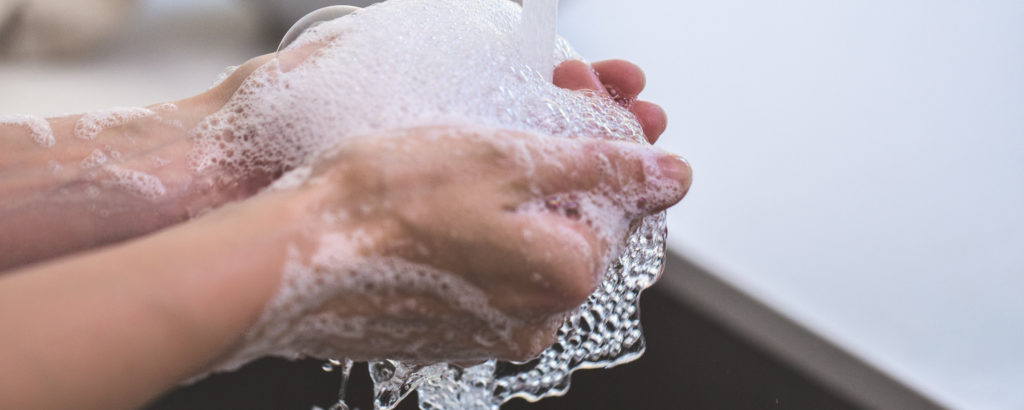News
Mar 3, 2020
Covid-19 (Coronavirus): Statement on dry skin and frequent handwashing to reduce Covid-19 risk

This statement was last updated on 24th March 2020
Please note: This advice is solely on managing the impact of frequent handwashing on the skin. See the News & Media section of the website for our other Covid-19 advice.
Hand sanitation is a crucial part of infection control strategies, and regular handwashing, for at least 20 seconds is recommended. For handwashing instructions, please click here.
Although handwashing is preferable, hand sanitisers can also be used to reduce the risk of coronavirus spreading.
Repeated exposure to water and use of soap, alcohol hand gel, and other detergents can cause dry skin, and what is known as irritant contact dermatitis – a form of eczema. Irritant contact dermatitis can cause the skin to itch, become sore and red, and develop small blisters or painful cracks (fissures). If you already have dry skin either from a skin condition, from medication (such as isotretinoin) or because you are washing your hands more than normal then you may be particularly susceptible to this.
Hand management tips:
Here are some tips on minimising the impact of frequent handwashing on the skin:
• Wash hands in line with government guidance, using soap and water. This can be difficult for people with dry and cracked skin, but we advise to follow the government guidance as much as is practical.
• Dry your hands fully after washing by patting them dry, not rubbing.
• Moisturisers (emollients) are an essential part of treating hand dermatitis. They help repair the damaged outer skin and lock moisture inside the skin making it soft and supple again. They should be applied generously after handwashing, repeatedly through the day, and whenever the skin feels dry.
• Some people find overnight moisturising treatments beneficial. Apply a generous layer of a plain moisturiser just before you go to bed, then put on a pair of clean cotton gloves and leave overnight.
• When the hands are going to come into contact with water or detergents, but when not specifically washing the hands (such as when washing up, shampooing a child’s hair, or using cleaning products), wearing gloves that provide a barrier (such as nitrile gloves which are available from chemists or from online stores) will help to keep the skin’s barrier intact.
Severe hand dermatitis
If you have severe hand dermatitis or suspect an infection (for example, your skin is oozing) you may need to see your GP. You may need prescription treatments to reduce inflammation.
Further hand washing advice:
Professor Hywel Williams, a BAD eczema expert, covers COVID-19 hand washing advice in this University of Nottingham video: https://mediaspace.nottingham.ac.uk/media/COVID-19+hand+washing+advice/1_wlufymil
General Guidance:
Follow general advice provided to the general public in minimising the risk of infection:
DO:
• cover your mouth and nose with a tissue or your sleeve (not your hands) when you cough or sneeze
• put used tissues in the bin immediately and wash your hands afterwards
• wash your hands with soap and water as often as is practical – do this for at least 20 seconds
• always wash your hands when you get home or into work and before eating
• if you have dry skin then use moisturiser after washing your hands
• use hand sanitiser gel if soap and water are not available
• try to avoid close contact with people who are unwell
DO NOT:
• do not touch your eyes, nose or mouth if your hands are not clean
If you become unwell or develop a fever, follow the advice given by the NHS.